Almost everyone has one or more T-shirts in their closet. T-shirts are quite popular; hence they are often the first product startup clothing companies produce. Today, T-shirts come in so many designs, textures, styles, and fabrics, giving customers a wide selection to choose from.
There are many things to consider during the creation of a quality T-shirt, one of them being the fabric. Choosing the right fabric is very important, but the two most prominent reasons are comfort and fit. Understand that different fabrics have different characteristics; whether it is poly, rayon, or cotton, all are different and serve a specific purpose. Thus, people typically choose a t-shirt made of a certain fabric based on the occasion they are wearing the t-shirt for. For example, if you’re in warm weather, a cotton t-shirt would be best, if you are thinking of hitting the gym, choose a shirt made of polyester as this fabric is best for gym wear.
If you want more insight on the different fabric options, keep reading because in this post we’ll discuss the best fabric for t-shirts so you can choose the best fabric for your needs.
Thickness of fabric
What is fabric weight? (GSM)
The fabric is weighed in grams. It has the abbreviation GSM, which stands for Grams per Square Meter (g/m2). The fabric is weighted by calculating the grams of one meter by one meter square and the weight of the material.
The higher gsm, the thicker fabric.
140gsm-160gsm fabric is normally considered a lightweight fabric. Suitable for girls’ summer t-shirts and sports and fitness t-shirts.
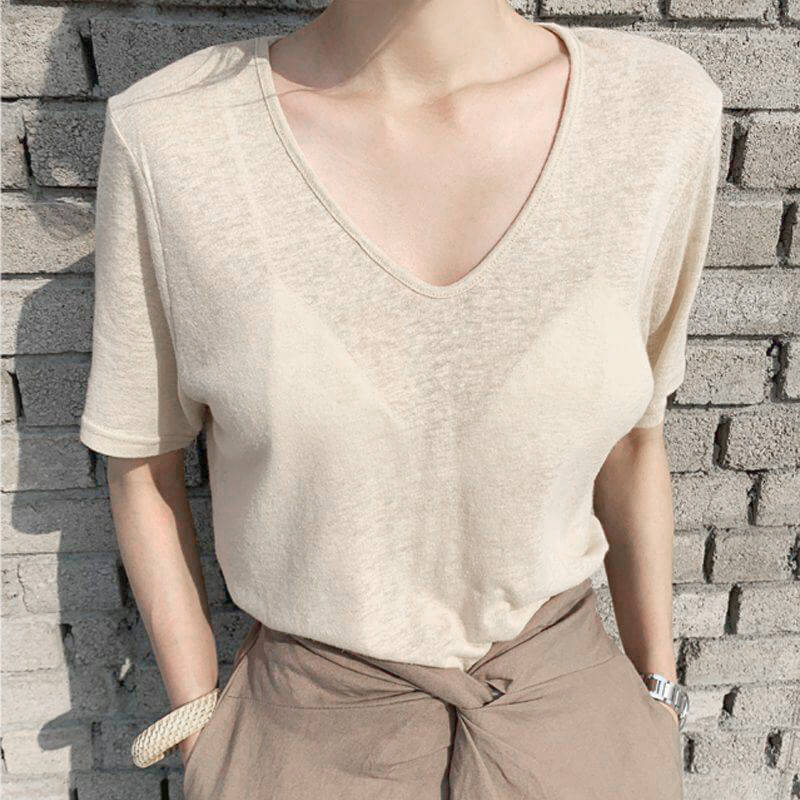
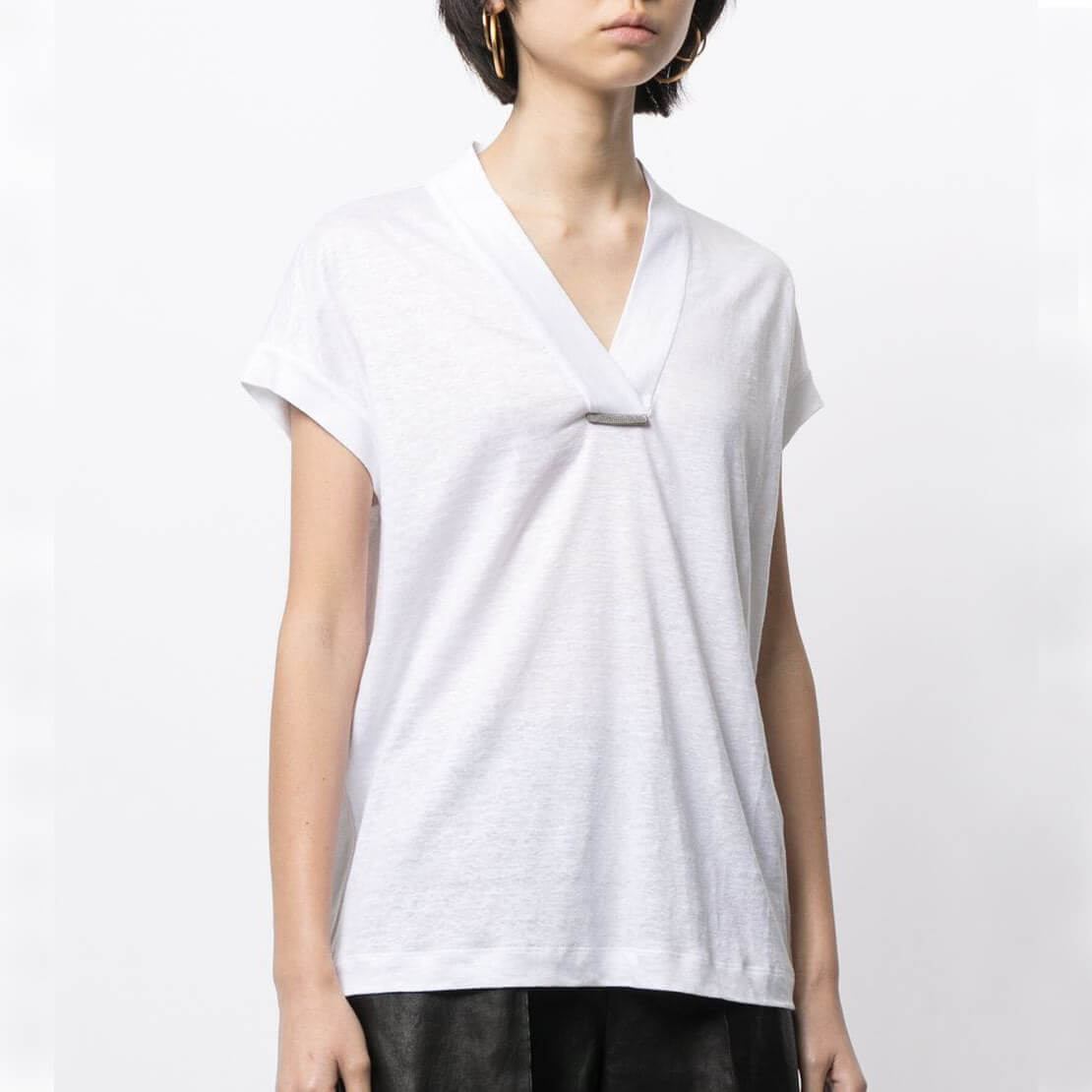
170-210gsm fabric is a mid-weight fabric that is the most frequently used for summer t-shirts.
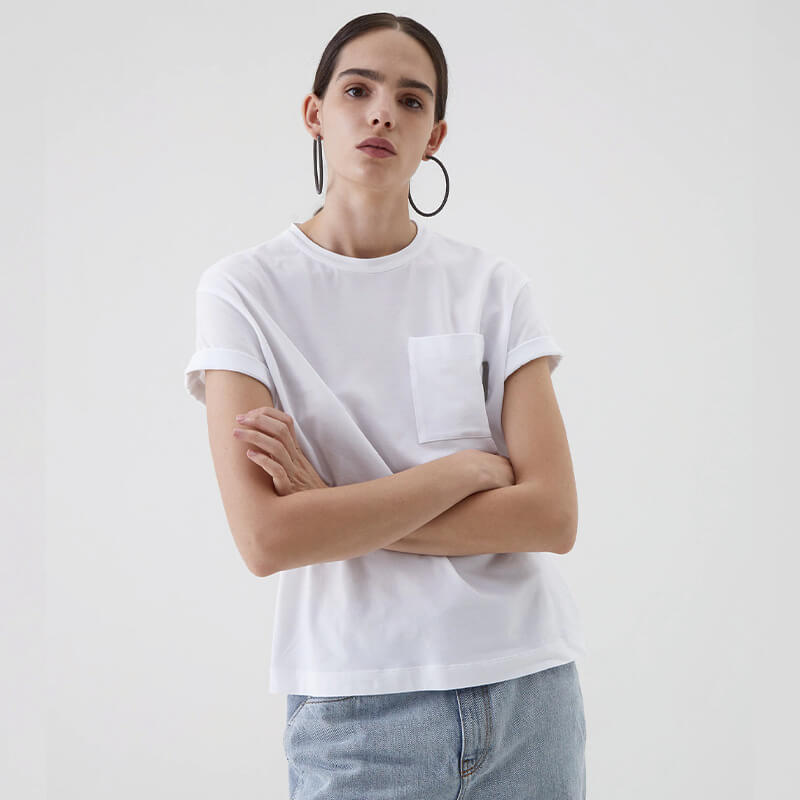
220-260gsm fabric will be considered as a heavyweight fabric that is commonly used by some streetwear brands.
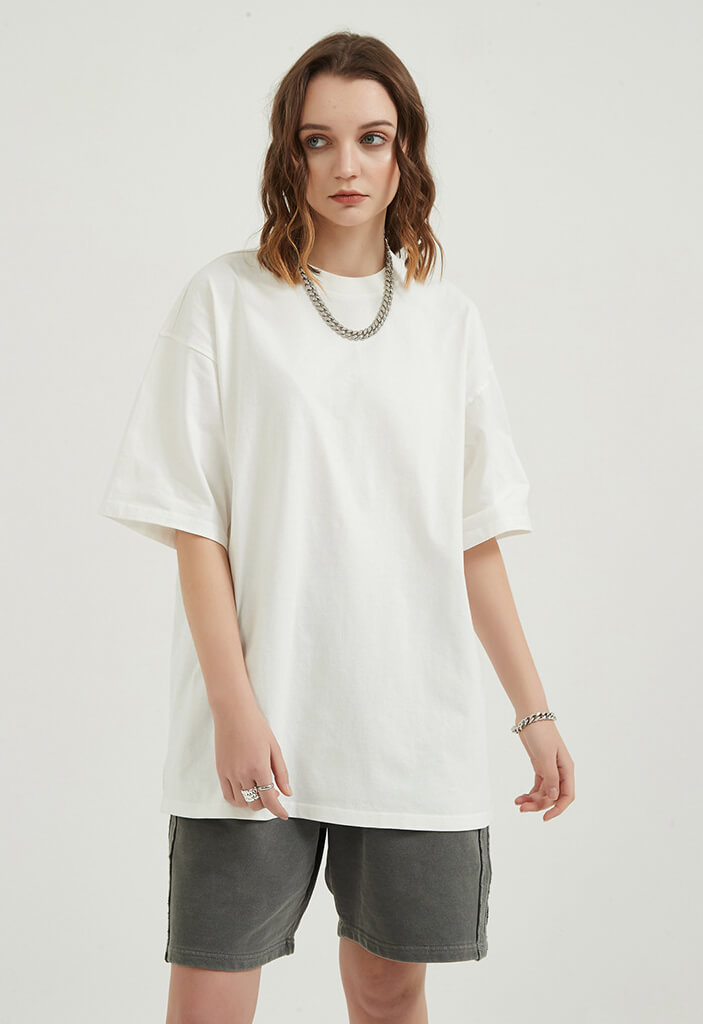
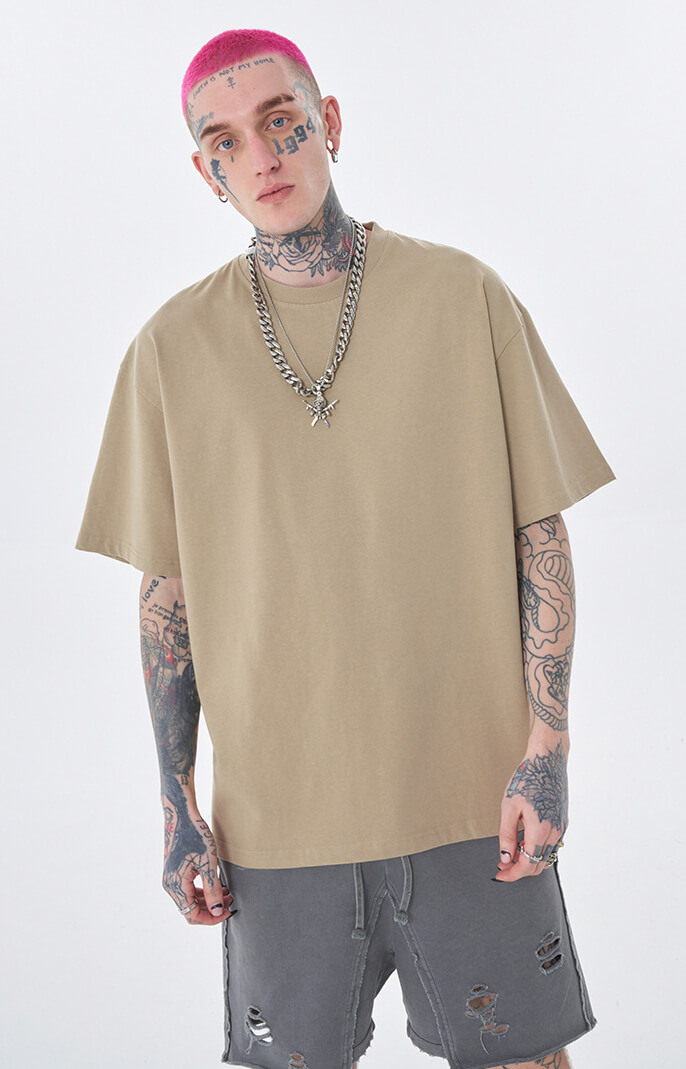
270-300gsm fabrics are super thick. Not so suitable to wear in hot summer but quite popular since 2018 because it brings the t-shirt an extraordinary stylish look.
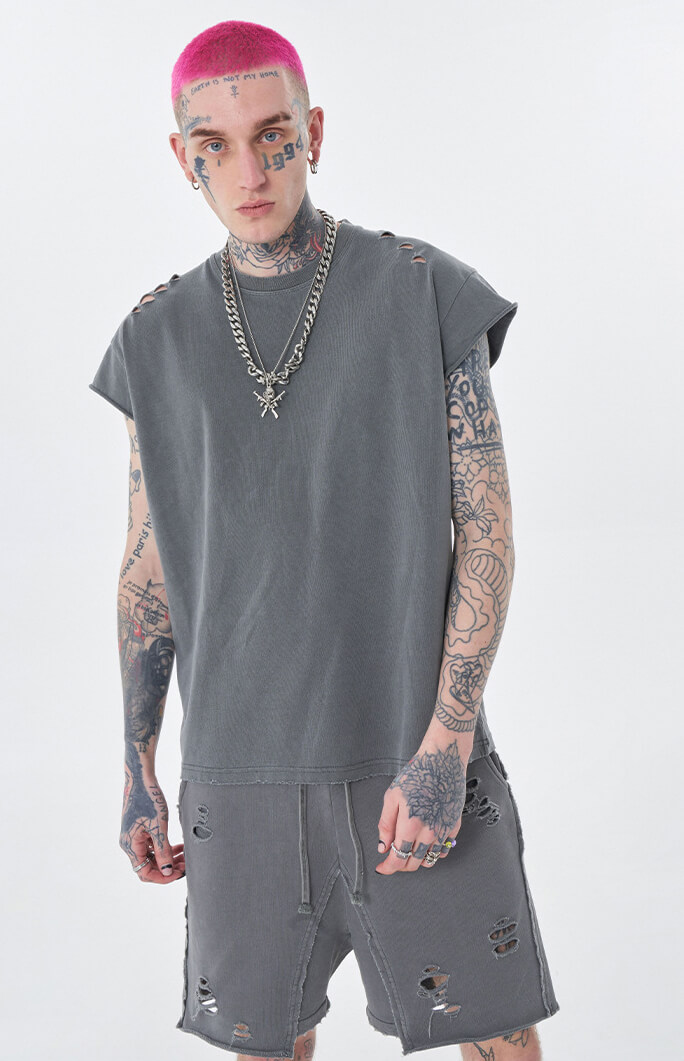
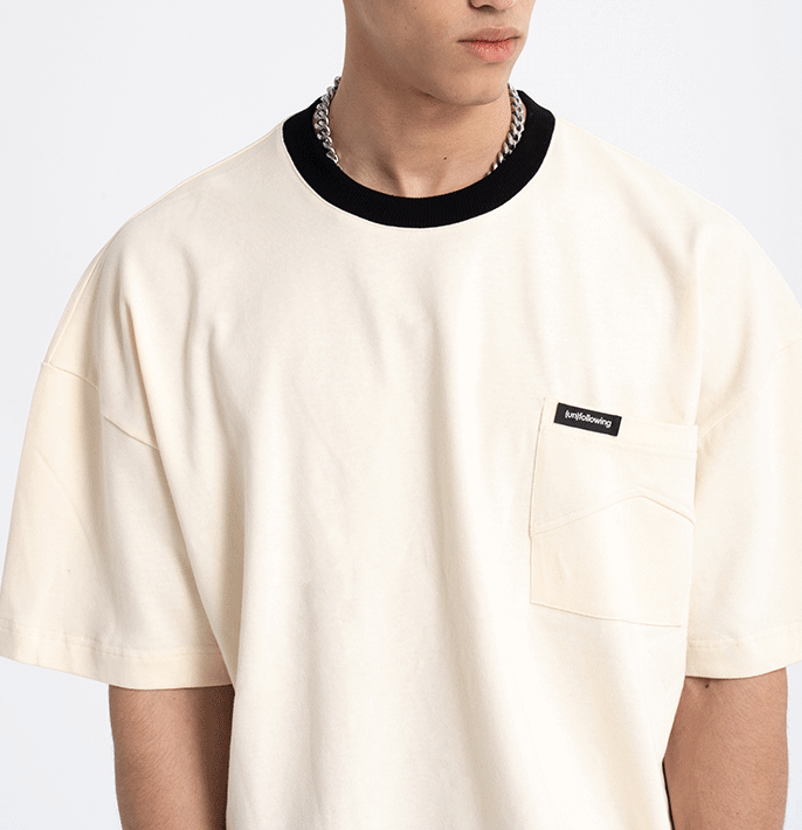
Pictures of different gsm fabric:
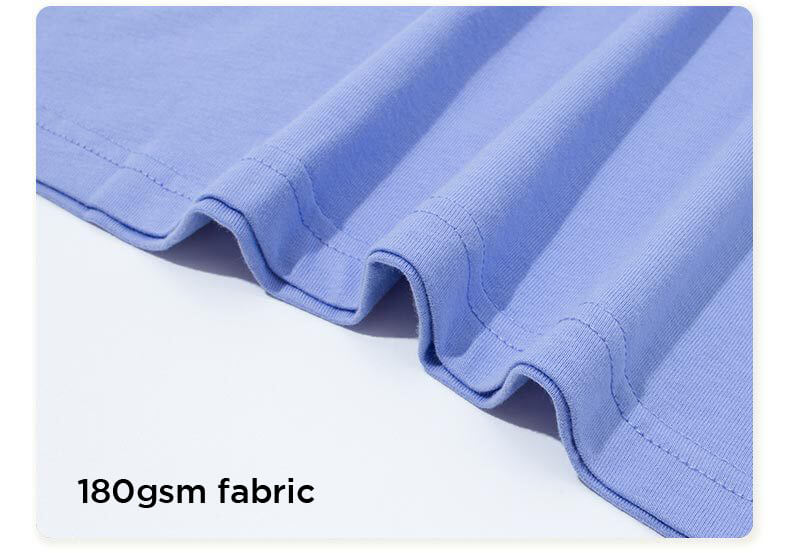
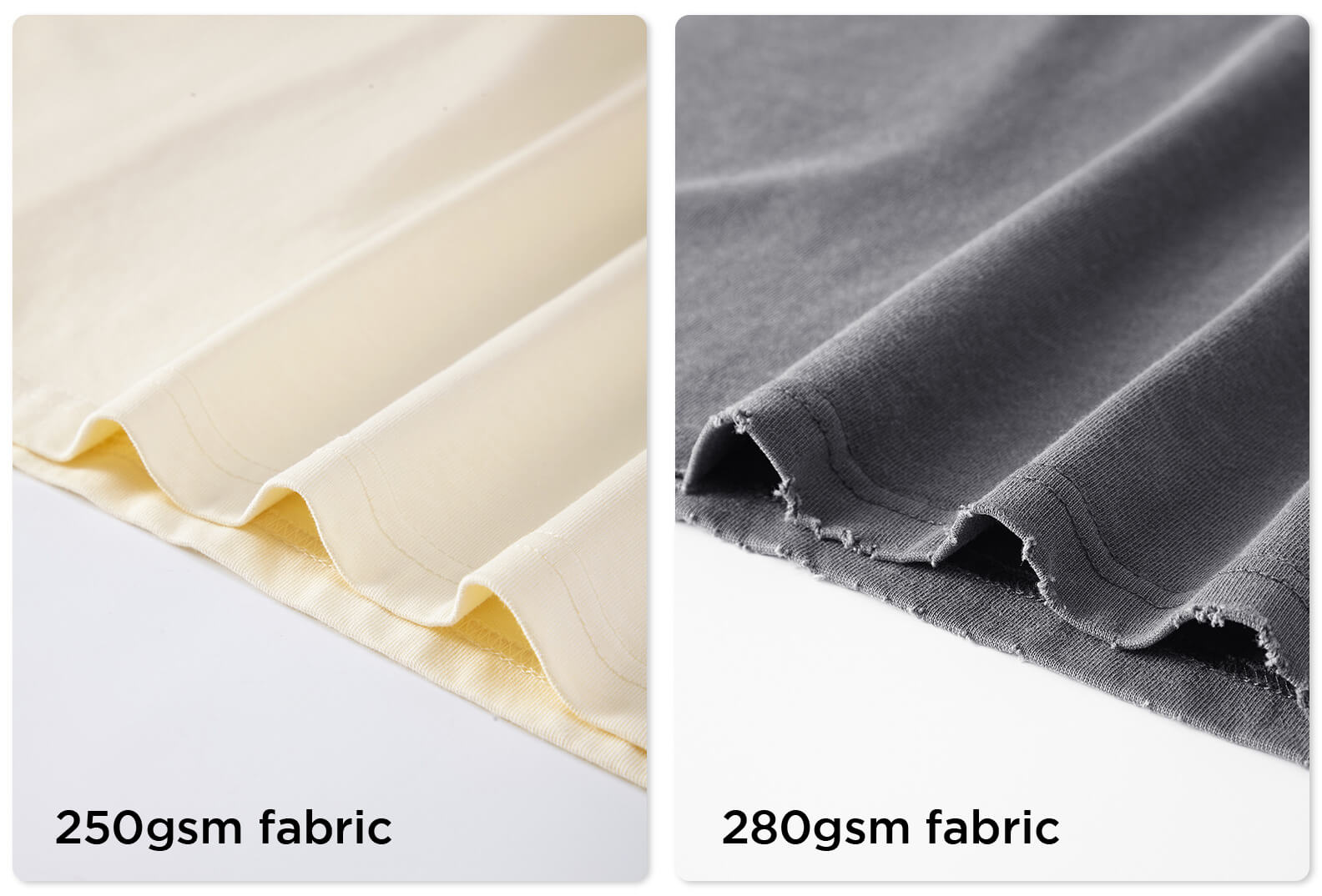
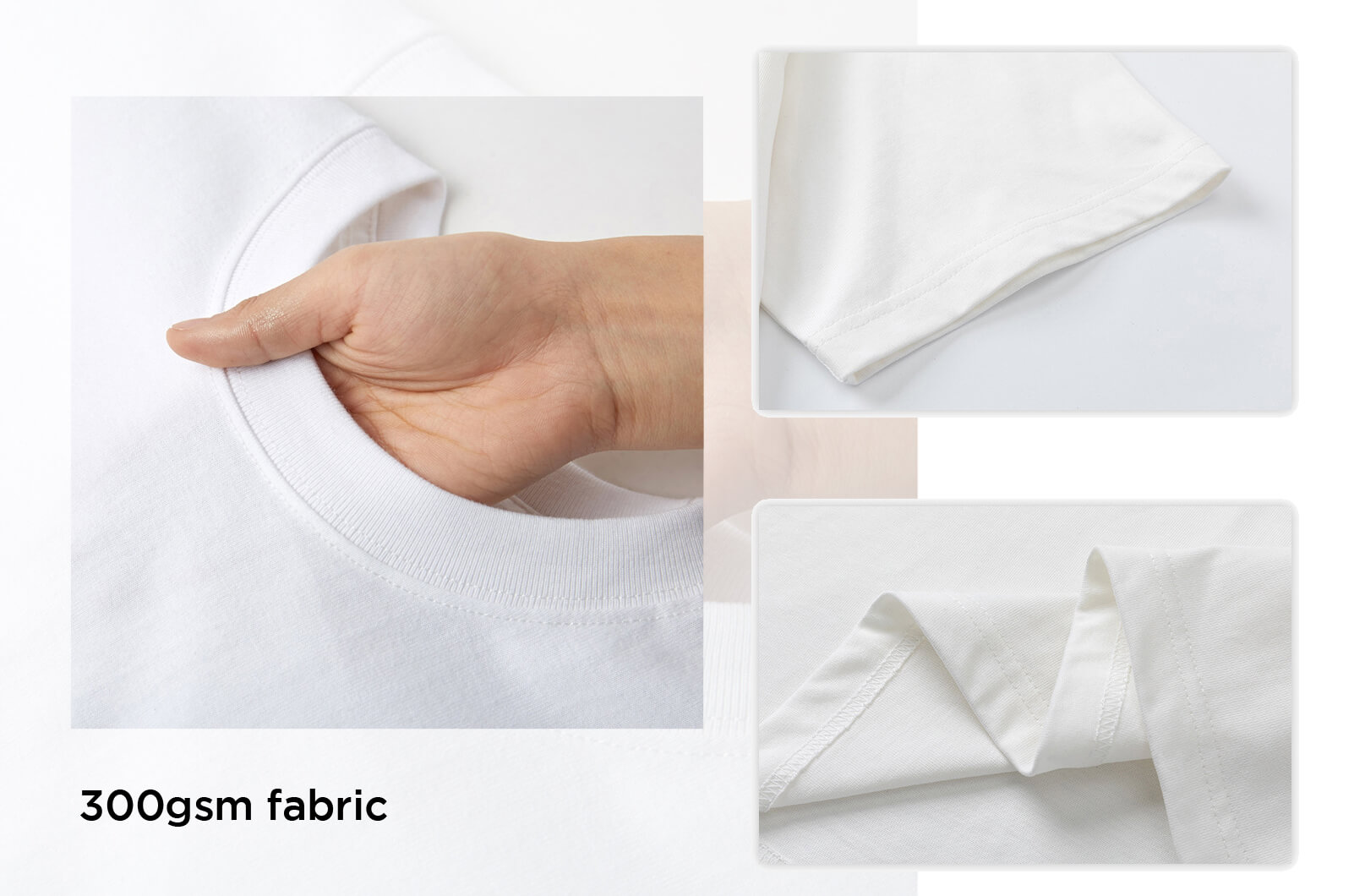
Softness of fabric
What does the single means in fabric?
Singles, or S, refers to the yarn count. It determines the softness of the fabric. The higher the number, the finer the thread, and thus a finer, softer fabric is created.
For example, the 32S cotton fabric is softer than the 21S cotton fabric.
10S-16S cotton fabric feels rough and stiff. It used to be made for some cheap t-shirts, such as campaign t-shirts and promotional t-shirts.
Nowadays, many streetwear brands use it to make stone-washed or 90S style t-shirts. It brings you a stylish and vintage look.
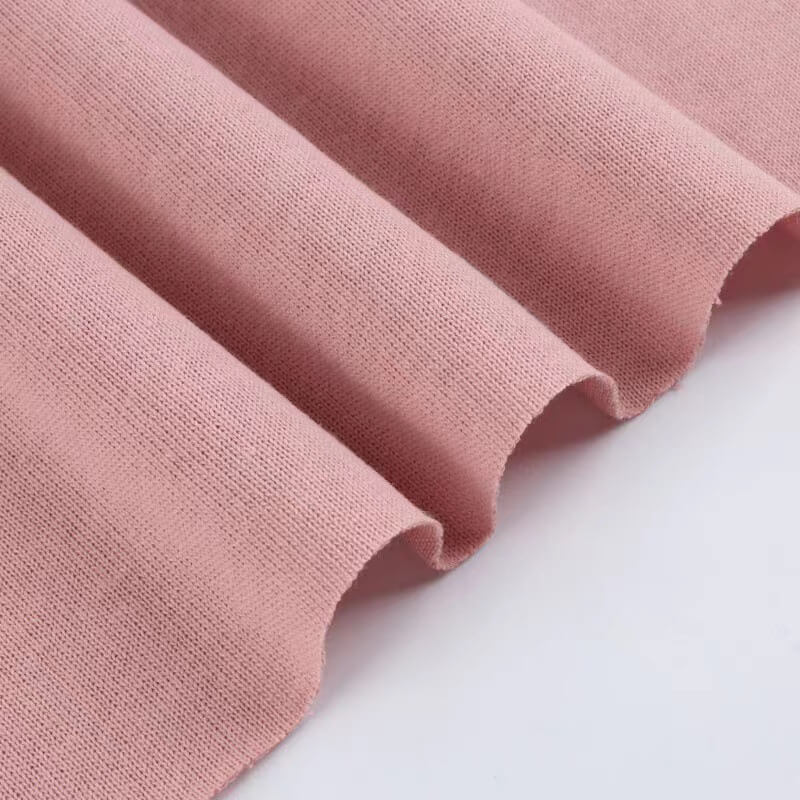
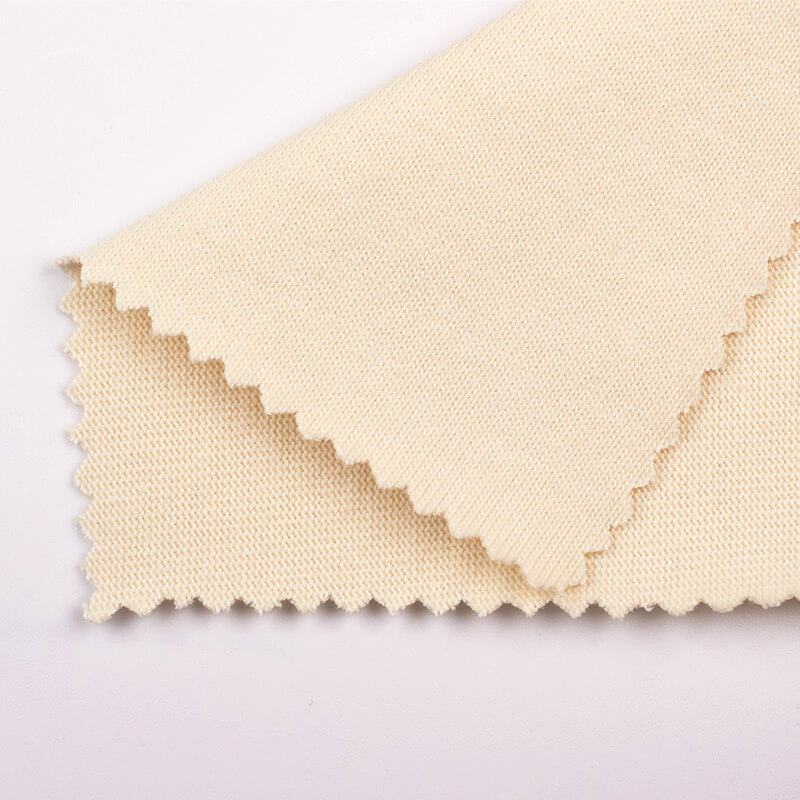
21S-32S cotton fabrics are the most frequently used. I will say 90%of the cotton t-shirts you see in the market are 21S, 26S, or 32S. It is soft and moderate.
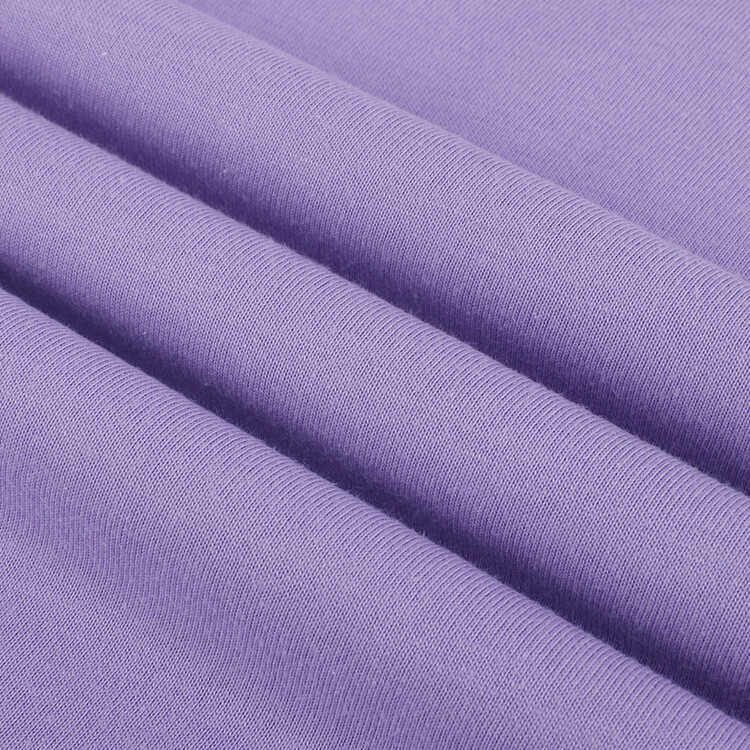
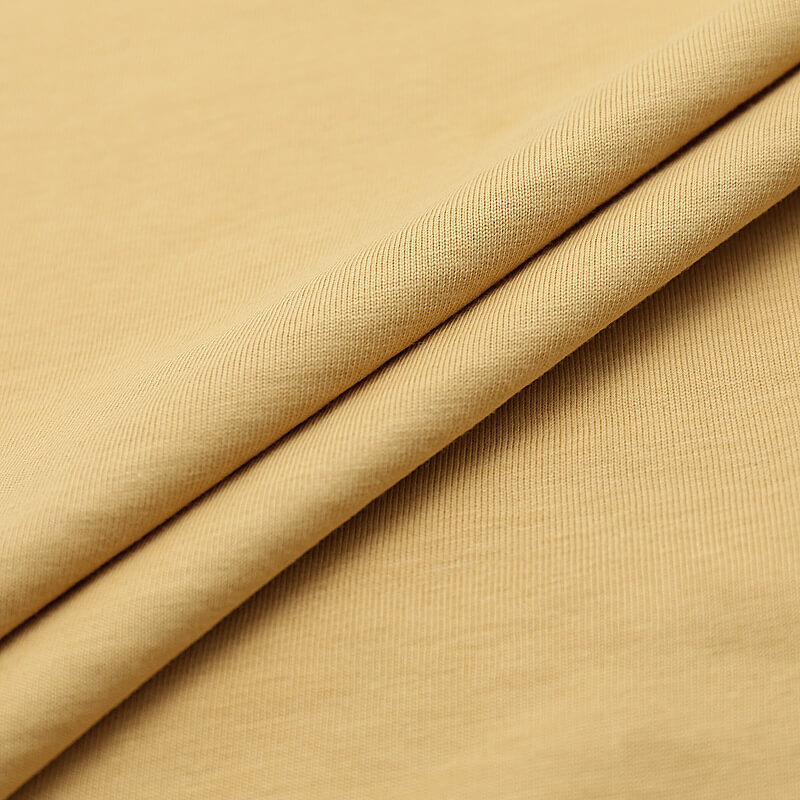
40S-50S cotton fabrics are considered high quality. Normally only some high-end brands use high-count fabrics to make t-shirts. T-shirts made of this kind of fabric, the price is generally not less than $60.
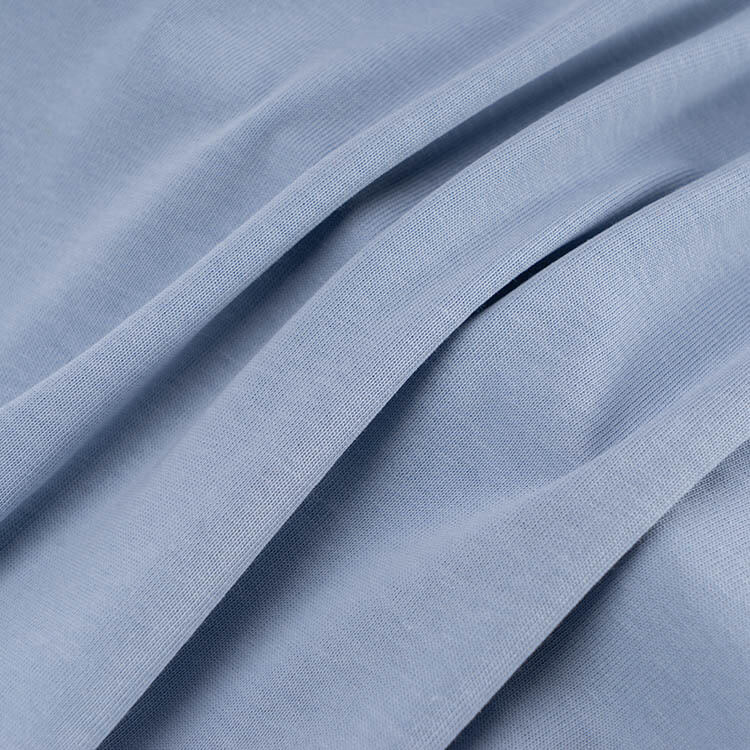
60S or higher S cotton fabric is said to be the “Hermes” in fabrics. It is unparalleled in softness and has a smooth, non-marking finish. Wearing it is like lying on a cloud.
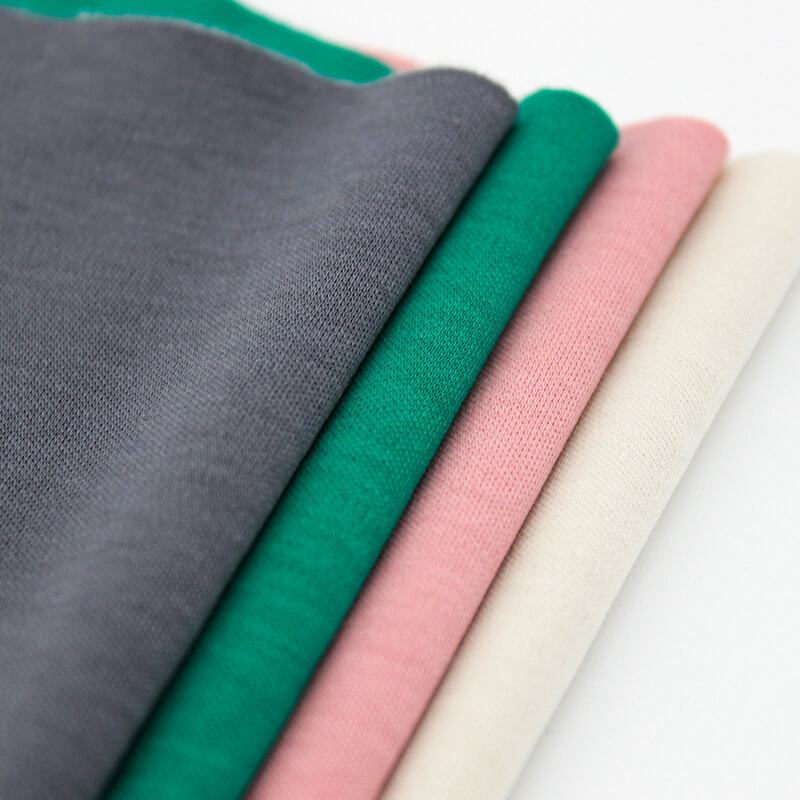
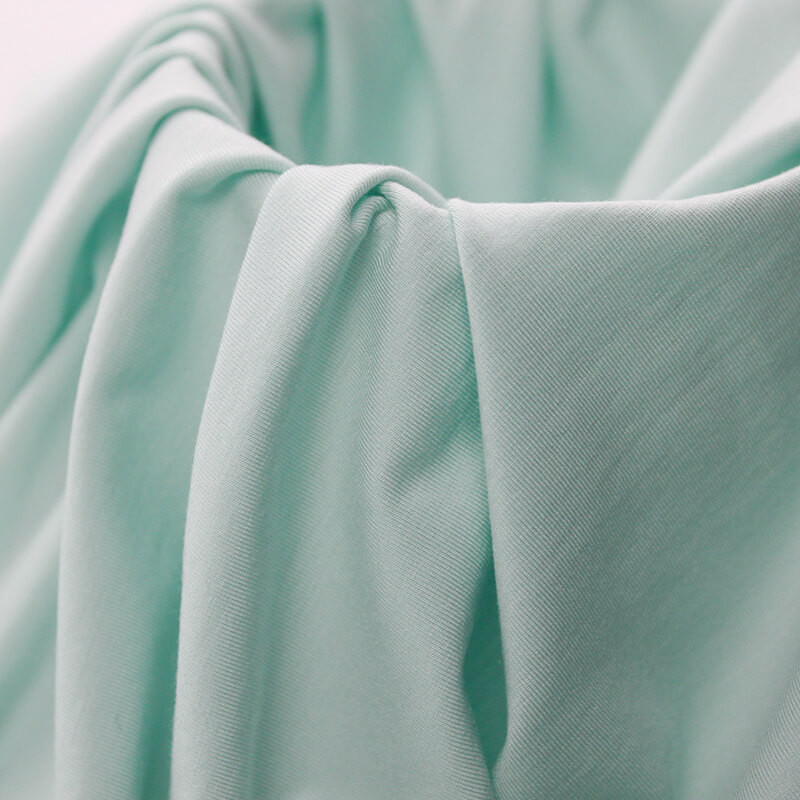
Different kinds of fabric
When you make your own t-shirt designs, there are lots of things to consider. Color, style, and printings play an important role. However, the first thing you need to consider is how to choose the suitable fabric.
Different kinds of fabric have their own features, so you need to keep balance among your budget, purpose, and target customers.
In the following sections, I will offer you our top tips to help you decide which T-shirt material is right for your project:
100%cotton
Cotton is commonly used when making t-shirts. Cotton is a great material because it is perfect for casual and everyday wear. Cotton is soft and breathable thus making it suitable for every occasion. Cotton is hypoallergenic, which means it won’t irritate your skin, thus it is great for people with sensitive skin.
While cotton is quite comfortable, it is not deemed a light fabric, it doesn’t dry quickly and it shrinks after a first warm wash. Hence, cotton is best suited for t-shirts that will not be used for exercise purposes or outdoor activities.
One of the most prominent advantages of cotton is that it is affordable.
I will recommend using cotton fabric if:
1. The t-shirt is a normal fit or oversized, as long as it is not a slim fit style. Cotton is great for basic t-shirts for your clothing line.
2. You are a starter in the clothing industry and don’t know how to use fabric. Trust me, the cotton fabric won’t let you down.
3. You have to create a large number of T-shirts for a conference, public – or charity event and don’t have a large budget but still want something that is of normal quality.
4. You create t-shirts for people that may have sensitive skin like kids or patients.
95%cotton 5%spandex
95%cotton 5%spandex fabric is just like 100%cotton, but adding an extra 5%spandex makes the fabric softer and stretchier.
So I will recommend using 95%cotton 5%spandex fabric if:
1. Your t-shirt is a slim fit or muscle fit style.
2. You want softer cotton fabric.
3. You need a good stretchy cotton fabric.
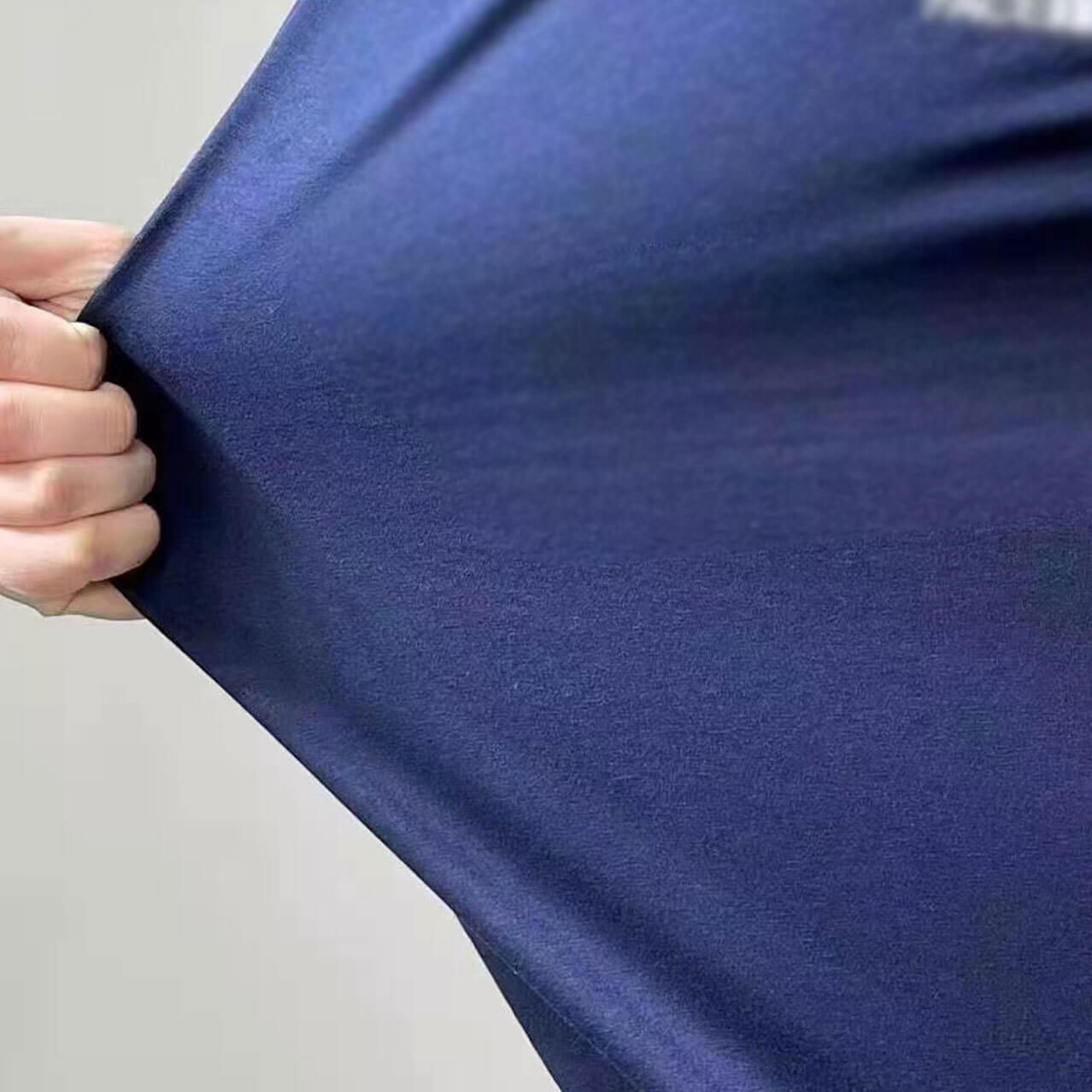
Polyester
Polyester is also commonly used to create t-shirts. It is a synthetic fiber. This fabric is an athletic-wear fibre that dries quickly, maintains its shape, doesn’t stretch, and mildew cannot form on it. Most sports apparel companies use polyester in their t-shirts.
In addition, polyester is flexible, durable, can mix with cotton, can be recycled, inexpensive, and dries fast after washing. While polyester has many advantages, it does have some disadvantages such as it is not breathable, it can cause water pollution as a result of the plastic microfibers it releases when it’s being washed, and it doesn’t break down quickly.
I will recommend using polyester fabric if:
1. Your target market is gym apparel or sports clothing.
2. You have a limited budget.
3. You need something really durable.
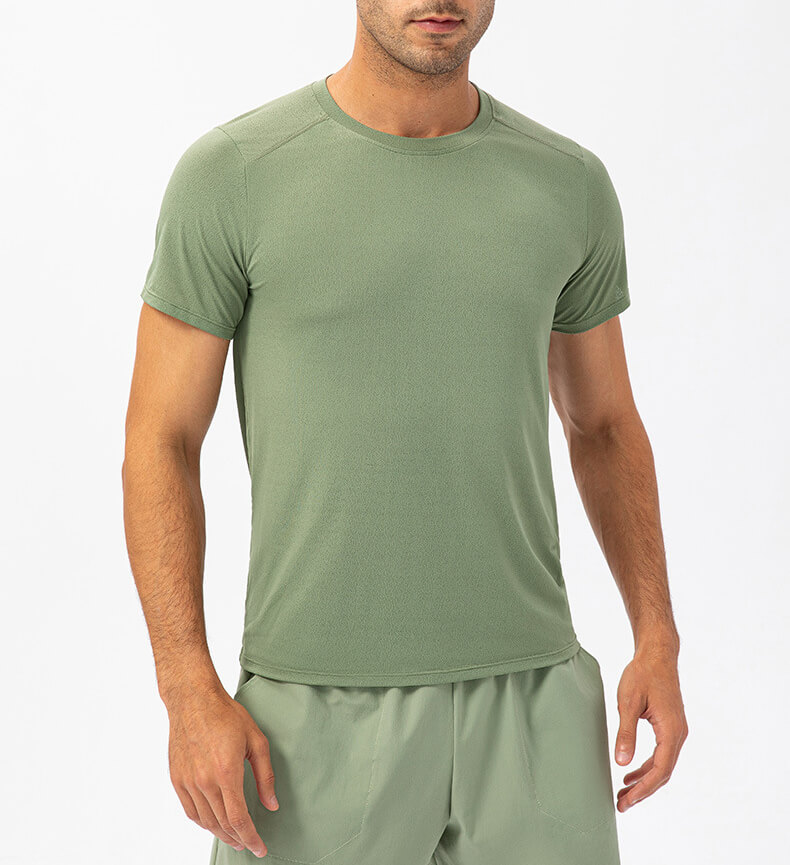
Cotton/ polyester blend
Cotton/poly blends are becoming extremely popular in the clothing world. This is because this blend has the benefits of both fabrics. This blend has the softness of cotton and the wrinkle resistance of polyester. Be careful when deciding on this blend as sometimes the blends have different percentages. Often the blend is 50/50, but at times the ratio is 65/35. But please remember, the more cotton, the softer and the better quality of the t-shirt will be.
I will recommend using cotton/poly blend fabric if:
1. You want your t-shirt to have the advantages of both cotton and polyester material.
2. You want to use cotton fabric but your budget is limited.
3. You need a long-lasting cotton t-shirt.
Rayon
Similar to polyester, Rayon is an athletic-wear fibre and serves as an affordable alternative to silk. Rayon is made from cotton, trees, and plants. This fabric is breathable with nice drapes. It is softer than cotton, dyes well, and is absorbent. The cons of this fabric are that is not eco-friendly and it wrinkles easily.
I will recommend using rayon fabric if:
1. You are making a t-shirt dress
2. Your target market is loungewear, sleepwear, or sportswear.
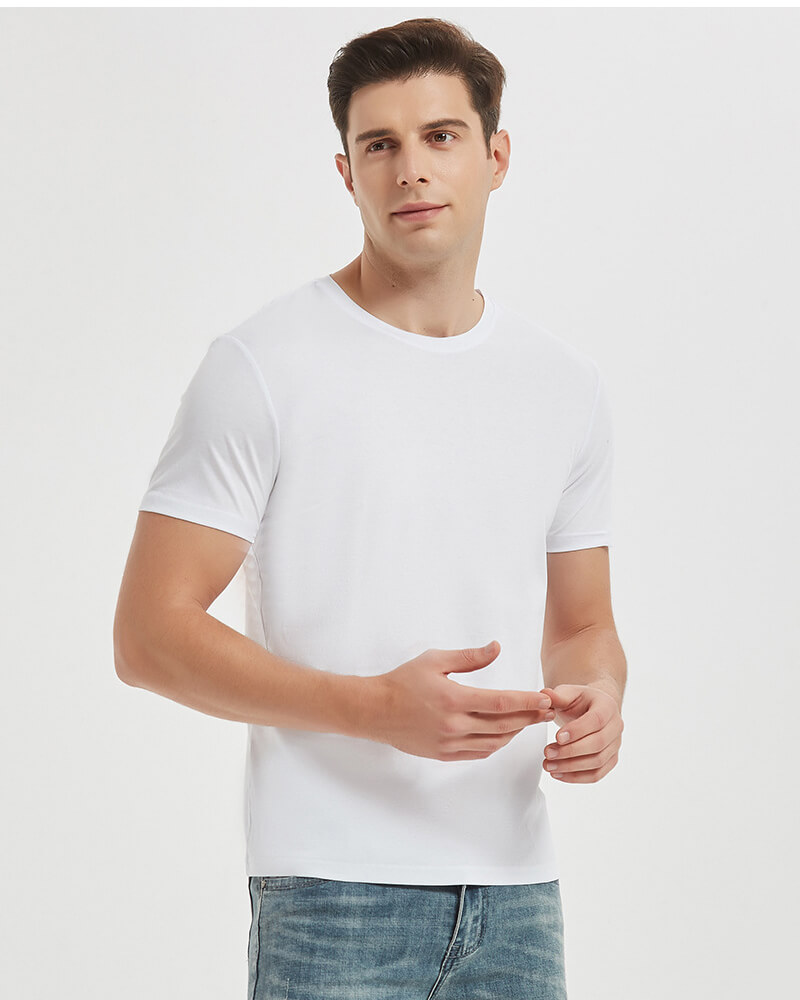
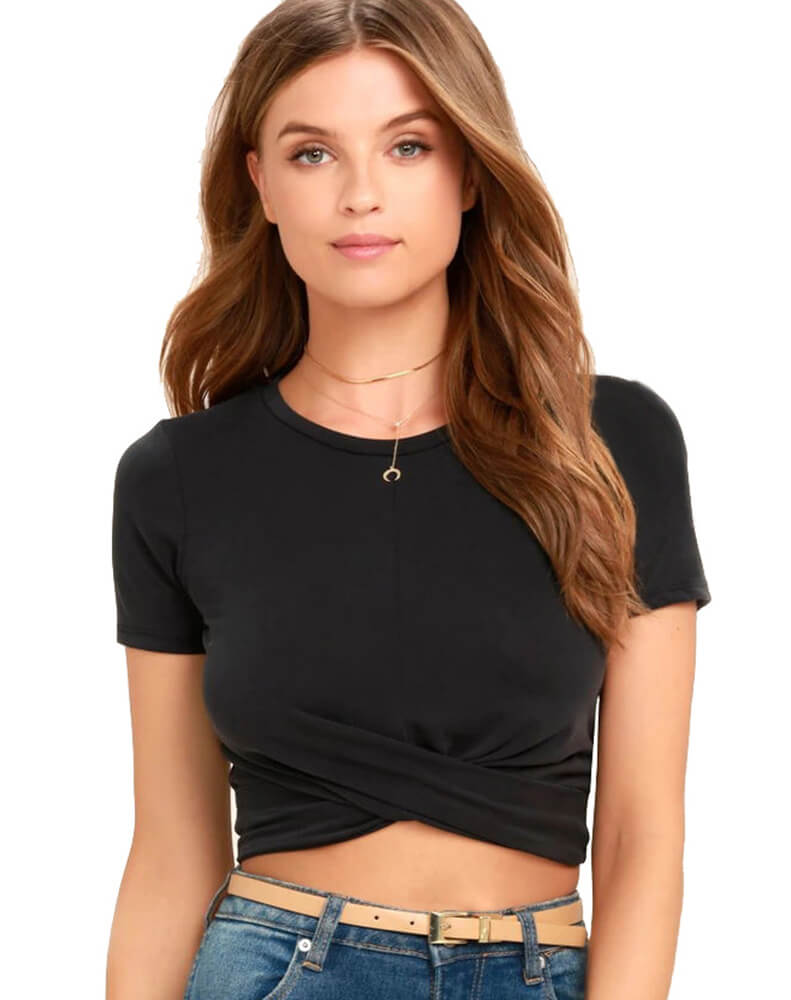
Triblend fabric
Triblend is a soft, lightweight and very comfortable fabric that has all the pros of the materials it is made of. This fabric is often a mixture of polyester, cotton, and rayon.
The downside of tri-blends is that it is delicate in nature and pills easier than all the fabrics I mentioned above.
However, one of the sharpest points of tri-blend fabric is that it has a unique marble color that other fabrics don’t have. That makes tri-blend fabric one of my favorites.
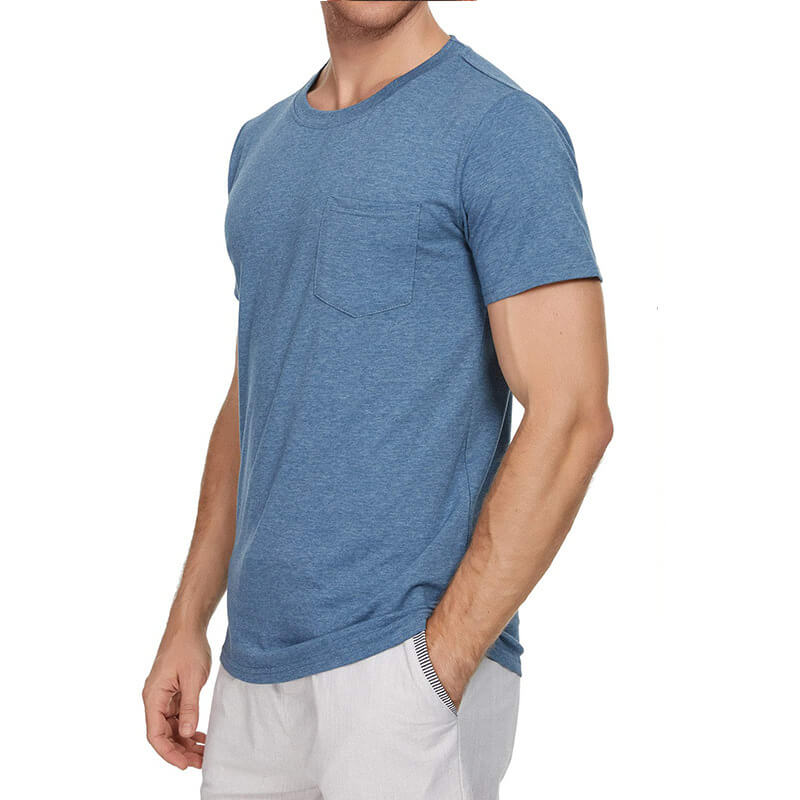
Slub fabric
Slub cotton is a unique type of cotton that makes the fabric looks like it has slight lumps. These lumps are created before the cotton is weaved, and the cotton is twisted in an irregular pattern.
Slub cotton is airy, light does not cling to the body, and has a natural texture that always makes it look even and neat.
I will recommend using tri-blend fabric and slub cotton fabric if:
1. You are tired of regular fabrics.
2. You want to give your customers a new and refreshing T-shirt.
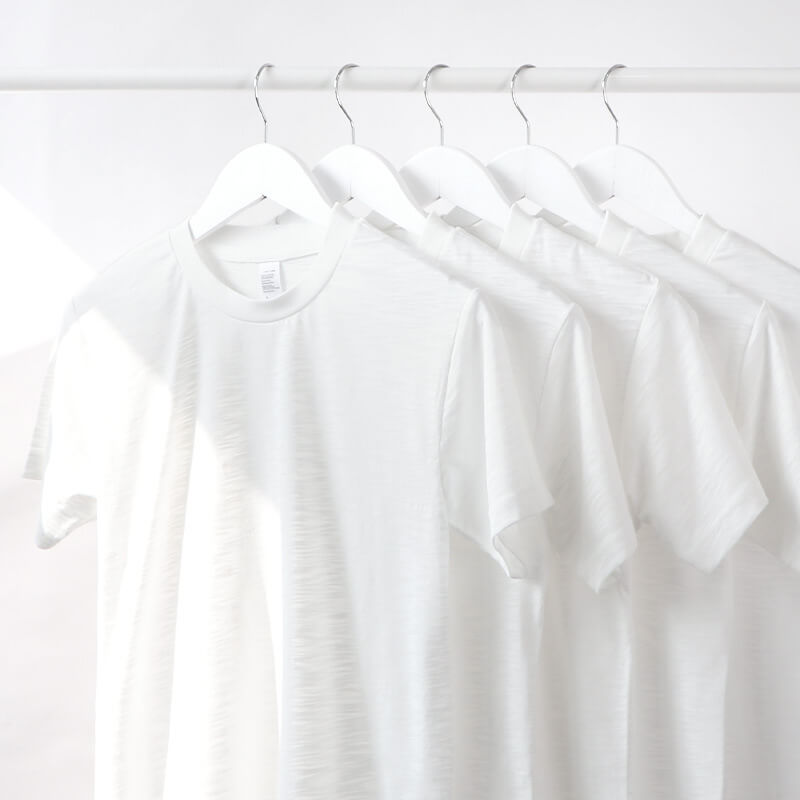
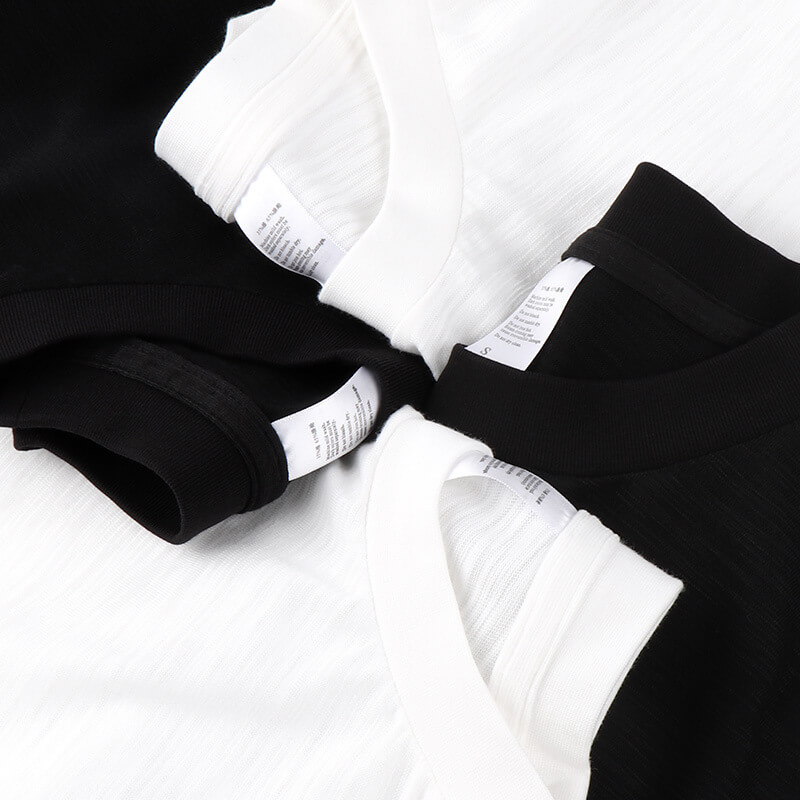
Ribbing fabric
Rib Knit is another type of fabric that is popular for collars and cuffs and provides natural elasticity.
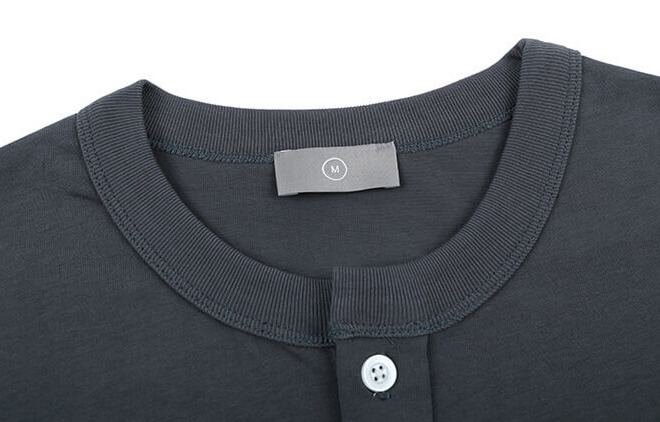
Nowadays, it is becoming increasingly popular to make t-shirts with ribbed fabrics.
Its unique texture gives a completely new feeling to a plain t-shirt. Ribbing makes you look visually slimmer. This fabric was a big hit in 2021 and continues to be so today. Because young girls love clothes that make them look thinner.
Ribbed fabric is perfect for crop tops. If your target market is the younger generation, I will recommend using rib fabric for your next drop.
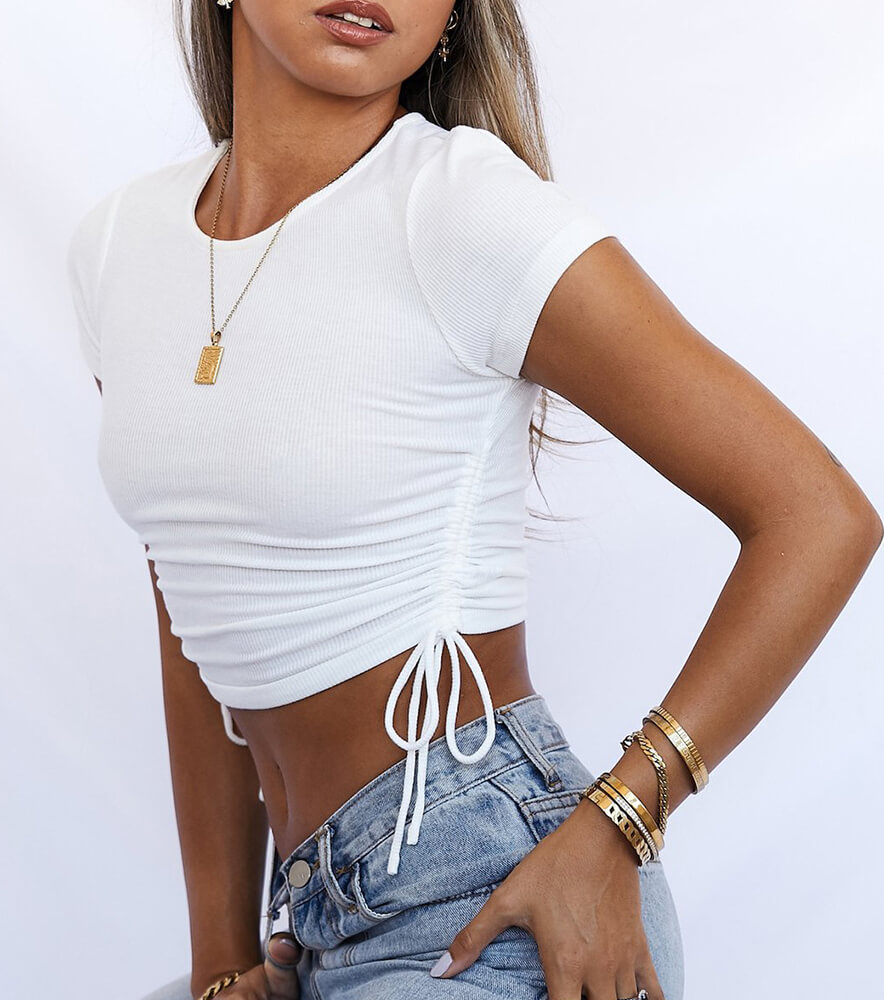
Brushed cotton fabric VS polished cotton fabric
What is brushed cotton?
Brushed cotton fabric, as its name suggests, is a cotton fabric brushed to create a soft, brushy texture.
Regular cotton fabric undergoes a mechanical brushing process where fine metal brushes carefully rub the fabric to produce fine fibers from the fabric yarn, making the surface of the fabric softer.
It’s softer and fluffier than regular cotton. However, it also pills more easily than regular cotton.
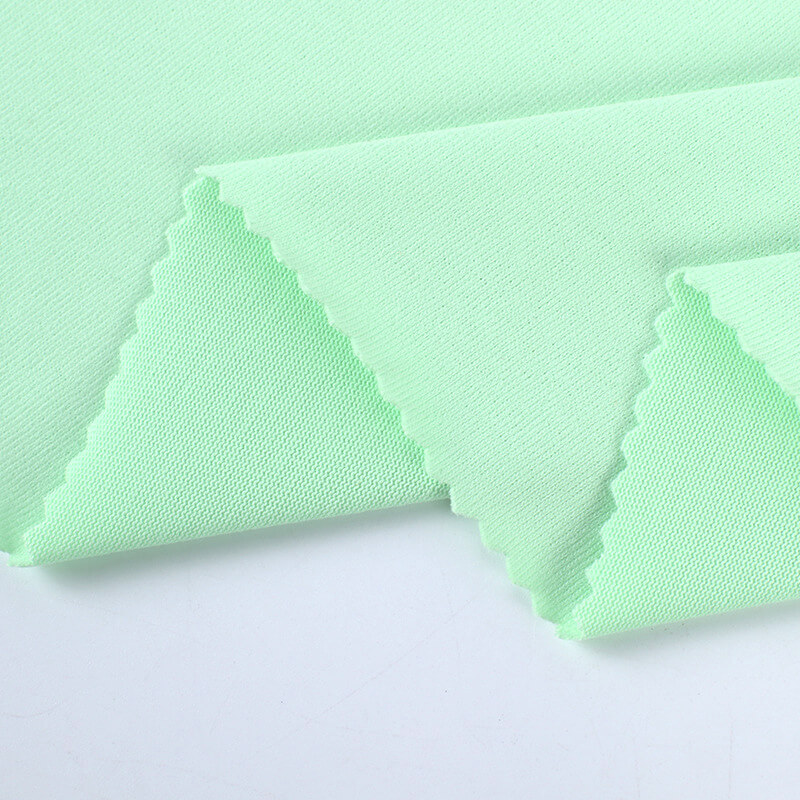
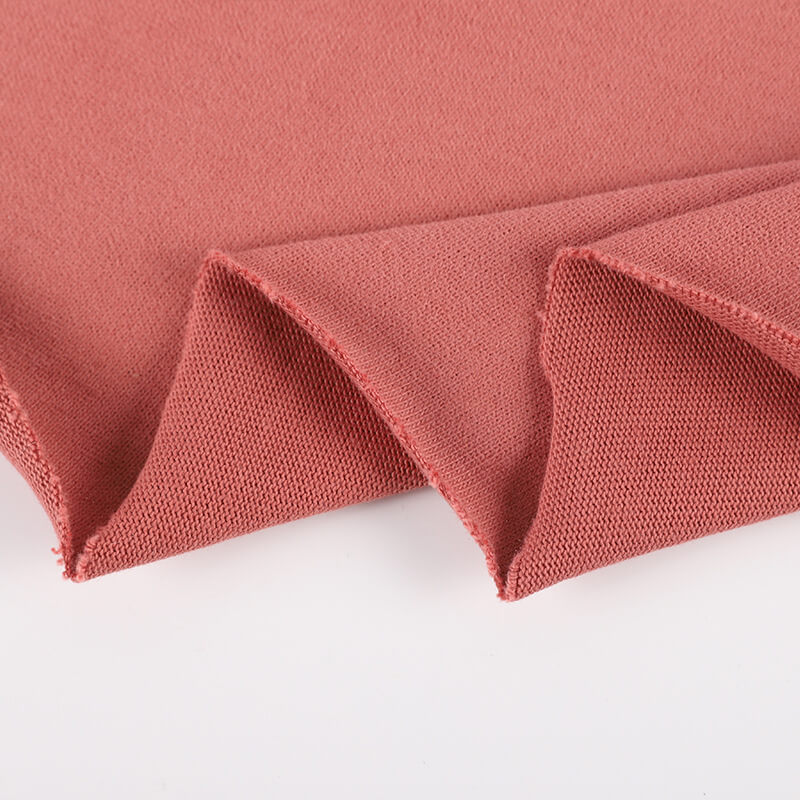
What is bio-polished cotton fabric?
Biopolished cotton fabric is a kind of cotton fabric that undergo using cellulases for surface modification. Bio polishing removes the protruding fibres and slubs from the surface of cotton fabric.
So the biopolishing cotton fabric significantly reduces pilling and is neater and softer than regular cotton fabric.
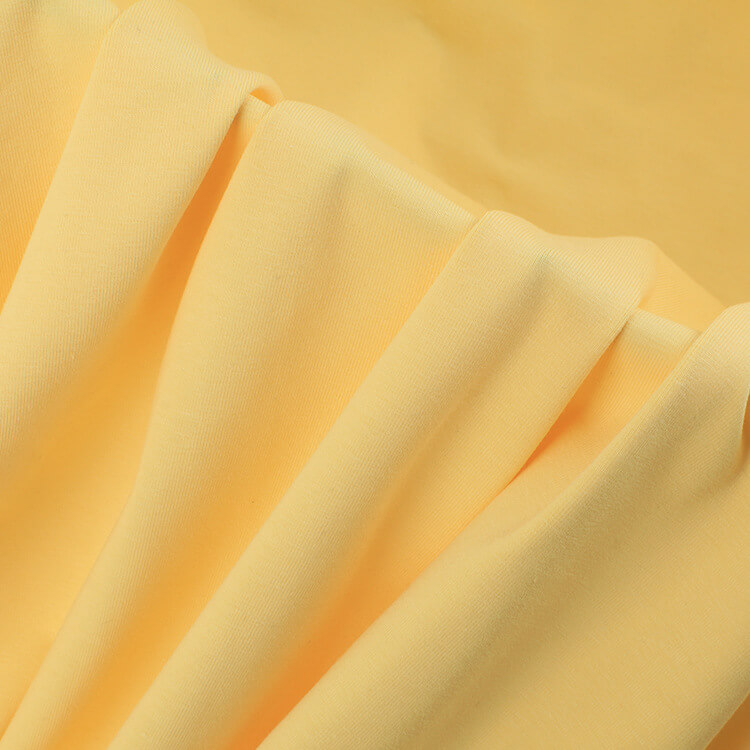
Some last words
Selecting the correct material for your t-shirt requires some knowledge about the type of t-shirt you want to create. Depending on the people or occasion you are designing the t-shirt for, you will have to consider different factors when selecting a fabric for your t-shirt. Take into consideration the softness, breathability, weight, and durability of the fabric. All these features can affect your comfort.
Regardless of what you do, when using fabric, seek to find a balance between different features of different kinds of fabric. If you’re not sure, use this information to help you out.
If you’re still unable to pick a fabric, feel free to contact us. We are certain that with our 18 years of experience in garment manufacturing, we can produce what you need.
